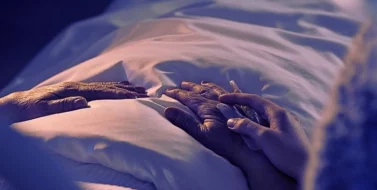The Chicago and South Chicago Nursing Home Lawyers at Grazian and Volpe have advocated on behalf of the elderly for over 25 years. It is unfortunate that many illnesses and injuries to the elderly are unavoidable and the causes often ignored due to the advanced age of the patients. We are happy to report that the medical community is recognizing that certain neural conditions are not always inevitable and may be prevented and/or treated.
Hospital delirium may not be caused by medical neglect but if a nursing home or hospital ignores the warning signs at the onset of the condition, serious and permanent brain injury could occur. One of the most common, dangerous, costly and least understand complications of hospital stays for the elderly is known as “hospital delirium.” This type of delirium results in large part from the actions of medical workers, according to Dr. E. Wesley Ely, a professor of medicine and critical care at Vanderbilt University School of Medicine. “Even well-meaning doctors are doing damage without knowing it,” he said.
A host of medication can upset brain function and trigger delirium by interfering with the neurotransmitters that communicate between nerve cells. The long list includes sedatives, sleeping pills, narcotic painkillers and some allergy, blood pressure and incontinence drugs. Immobilizing and immobilized patients can exacerbate the risk.
Each year 20 percent of the 11.8 million nursing home in hospitals and nursing care develop delirium, including 60 percent to 85 precent of those in intensive care on ventilation and more than half of postoperative surgical patients. Even though this condition is common, hospital delirium is not being identified or treated effectively as possible. “This dysfunction is grossly under-recognized,” according to Dr. Ely.
While the delirium may disappear by the time the patient leaves the hospital, debilitating brain injury may manifest in the form of severe cognitive problems, resulting in long-term memory and mental impairment.
Dr. Sharon K. Inouye, a professor of medicine at Harvard Medical School and director of the Aging Brain Center at Hebrew Senior Life in Boston states that, “Medical Schools are now training the new generation abour deliriums’s dangers, buts..thousands of doctors in the older generation ..don’t know how to recognize (derlirium) or know it (may) be preventable.”
Delirium and dementia are two different conditions and families, caregivers and the medical profession often confuse the two. Delirium signals that something in the body is seriously wrong and needs attention… immediately. Dementia is a chronic confusion and memory loss that comes on gradually and gets worse. Delirium is a confusion that comes on suddenly and is brought on by triggers such as infection, the stress of disease or an operation, not getting enough food or water, sleep or the cocktail of medications given by the hospital or nursing home facility.
Table of Contents
Your Chicago and South Chicago Nursing Home Neglect Attorneys at Grazian and Volpe want all our elderly clients, family and caregivers to look for any of these four signs:
- Acute change of mental status: Not making sense when he or she talks? Disoriented, illogical, or unable to focus. Trust your instincts and insist that the staff know and understand that this is not normal behavior
- Inattention: As you hold the patients’ hand, ask him or her to squeeze every time you say the letter “A”, as you spell out “save a heart.” If they miss or squeeze the wrong letter, that is a sign of delirium.
- Altered lever of consciousness: You’re looking for two possible extremes. In hyperactive delirium, patients are anxious, agitated, and aggressive. In hypoactive delirium, they will be sleepy and not making eye contact.
- Confusion and disorganized thinking: Can the patient track a conversation? Ask simple questions like, “does one pound weigh more than two pounds?”, or “Will a stone sink or float in water.”
Be insistent and persistent if you sense something is not right with your elderly loved one. This condition may be stopped and long term brain injury avoided.
It is always better to stay safe but if you can’t stay safe-say with Grazian and Volpe, your Chicago and South Chicago Elder Advocates and Personal Injury Lawyers for over 25 years. Please follow us on our blog or on WCIU, You and Me in the Morning on the first Tuesday of every month where we try to answer questions and educate the public on how to avoid injury and advocate for their rights.





